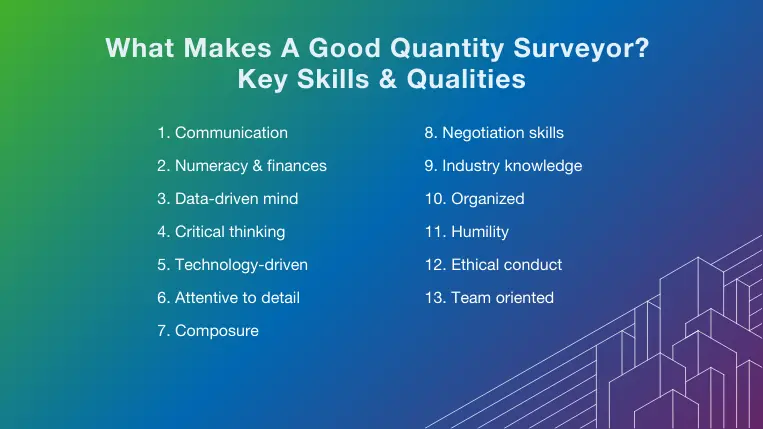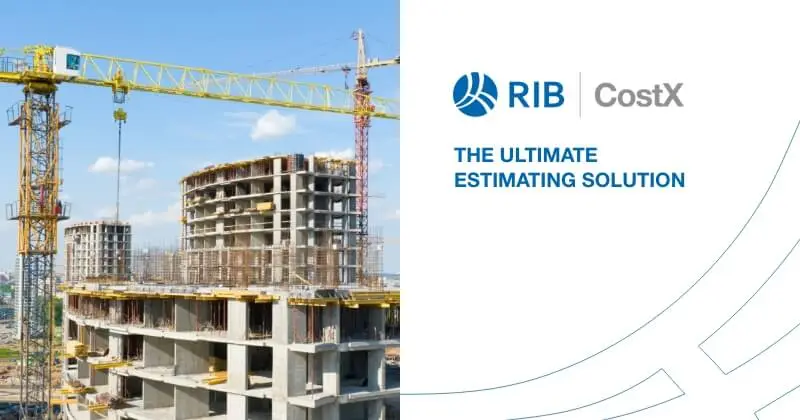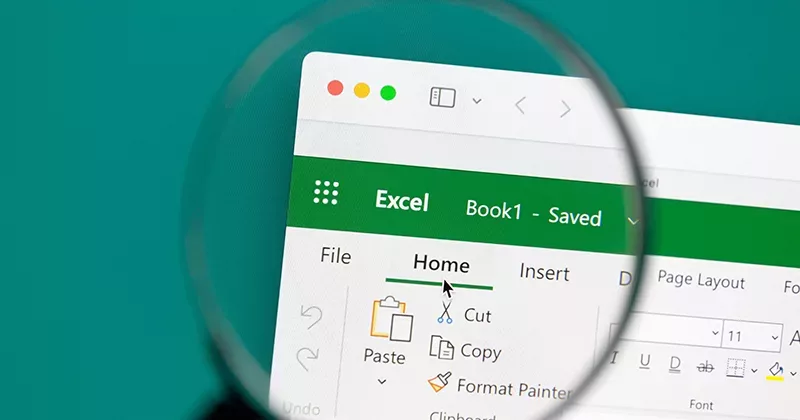11 mins read
Understanding The Key Skills & Responsibilities Of A Quantity Surveyor

As one of the slowest industries to stretch its legs in the frantic digital transformation race, the construction sector is finally making great strides, thanks to new tools and techniques that are moving the needle by addressing pain points and improving project outcomes.
Amidst these tumultuous changes, the quantity surveyor‘s role continues to evolve. Modern surveyors often have a broader scope of responsibilities and a more prominent role in project teams than they once did. Those preparing for a career in the field must develop a wide range of skills and be willing to adapt to the industry’s evolution. This has become a lot simpler thanks to modern quantity surveying software.
To help you put the importance of this role into perspective, we have compiled a comprehensive guide that discusses the key quantity surveyor skills and responsibilities.
Let’s dive in!
Top Quantity Surveyor Responsibilities & Duties
The job of a QS has mutated a lot over the years. Today, they are more than just cost consultants; they play an active role in project management, ensuring all resources are spent smartly and efficiently.
The role and responsibilities of a quantity surveyor will vary depending on the scope of the project, the kind of organization, and whether they work on the side of the contractor or the client. However, there are still general duties that most surveyors need to manage during their everyday work. Below, we’ll discuss some of them!
During pre-construction, a QS will:
▷ Collaborate with the client to understand their needs and objectives
▷ Do a complete estimation of costs, quantities, materials, labor, and time
▷ Generate a detailed budget with cashflow projections for each stage of the project and identify cost-saving opportunities
▷ Work in collaboration with engineers and architects to put together an accurate BoQ, drawing, and specification sheet for tendering
▷ Identify and mitigate potential risks
▷ Select and source project materials and labor, including overseeing the construction bidding process and negotiating contracts with contractors and subcontractors for the different areas of the project
During project completion, key quantity surveyor responsibilities include:
▷ Overseeing building operations, ensuring every task is completed within the expected timeline and budget
▷ Following financial, legal, health, and safety requirements to avoid unexpected costs and ensure project quality
▷ Submitting regular reports to keep the client informed about progress, including real-time suggestions for performance and cost optimization
▷ Valuing completed work and arranging payment to contractors and subcontractors
▷ Advising and managing any contractual claims or disputes that might arise
During post-construction, quantity surveyor responsibilities include:
▷ Finalizing any accounting tasks, including comparing actual costs with projected ones for future forecasting
▷ Preparing documentation for tax purposes
▷ Finalizing any open disputes and closing the project according to industry standards
What Makes A Good Quantity Surveyor? Key Skills & Qualities

So, what makes a good Quantity Surveyor? It’s certainly not just about the software that you use. A good Quantity Surveyor should possess traits that set them apart from the average. These attributes don’t exist by accident or luck; they must be cultivated and integrated into your daily habits to ensure optimal yield.
Below, we’ll explore 13 crucial quantity surveyor qualifications for a successful career.
1. Communication
The profound ability to articulate clearly and concisely is among the most important duties of a quantity surveyor. Communication between relevant parties is crucial for successful project delivery, especially concerning the BIM workflow, where collaboration is at the core. Miscommunication is typically a contributing factor to an elongated project and wasted expenditure. With RIB CostX, construction communication is boosted thanks to customizable reports that allow you to convey key insights to non-technical stakeholders; furthermore, various data visualization functions such as Ghost view, Revision overlay, and Charts can aid communication efforts.
2. Numeracy & finances
As mentioned throughout the post, a QS needs to manage and optimize project costs to ensure the client or contractor gets the best return from their investment. To do so, they need to rapidly calculate and analyze figures to identify patterns and trends that will help to make the best cost optimization possible. Paired with that, a good QS needs to have a basic knowledge of finances to generate financial construction reports where numbers are looked at from a strategic and legal point of view. This is one of the most important quantity surveyor traits.
3. Data-driven mind
The ability to interpret and analyze data has become a core skill for quantity surveyors. A QS is traditionally adept at gathering its own data, but we’re now seeing significant consultancies using historical project data to their advantage. On large projects, accumulated data can be used to make robust predictions that lead to shortened build duration, reduced costs, and improved build quality. Prospective surveyors should research the current usage of data analytics on significant projects because these principles will likely play an integral role in our industry’s future.
4. Critical Thinking
Another one of the important quantity surveyor qualifications is having critical thinking and applying it to decision-making at crunch time. With CostX, you can examine different cost futures combined with the imminent “What If” scenario. Additionally, you can rely on a comprehensive audit trail, which includes revision logs, undo buttons, comparison reports, and quantity sourcing, to enable a swift and reliable response to impending offsets. Being responsive is a crucial feat in acquiring and retaining clients. Your clients must be reassured that any issues will be resolved immediately before they enter the terminal stage.
5. Technology-driven
If you ever worked in a modern construction environment, you know that using innovative technology and software is a part of everyday work. Without the right construction software solutions, the efficiency and quality of a project would not be the same. As a QS, you’ll need to be able to manage these technologies and use them to your advantage to be more efficient and accurate. Being technologically savvy will give you a competitive advantage, as delivery times are faster and errors are mitigated.
6. Attentive to detail (Meticulous)
The following requirement on our list of quantity surveyor skills is having an eye for detail. Being industriously attentive to detail enhances accuracy and reduces errors. With digital takeoff packages like RIB CostX, human error is significantly reduced through features such as “live links” and “revision overlay”; however, you should capitalize on the tools and not rely on them totally. Vigilant supervision of detail constitutes the overall success of a project. This reflects strongly on you and your company image, conclusively influencing the customer experience. As the saying goes, it takes years to build a good reputation but just seconds to destroy it.
7. Composure (Working under pressure)
One of the duties of a quantity surveyor is meeting deadlines every day. Typically, a QS won’t have the luxury of working on one project at a time. Duty calls, and you will likely be juggling multiple projects simultaneously. Being composed and able to work under pressure permits you to tackle your work in prime condition, ensuring tasks are completed without compromising company standards. Being composed includes efficiently prioritizing and evaluating your tasks concurrently, showing commitment at every stage of your work, and ultimately, giving an underlying quality of perseverance. With a comprehensive software package, this can often be all the more easier to manage.
8. Negotiation skills
One of the responsibilities of a quantity surveyor in construction is to manage different types of construction contracts and secure the best deal for your employer. To do so, you need to have excellent negotiation skills. This skill is often acquired with experience; however, if you come to a negotiation confidently and know what value you bring to the table, you can secure a fair deal for the project. Once you become good at it, it will boost your profile and make you a more complete and sought-after quantity surveyor.
9. Traditional industry knowledge
Manual measurement techniques, which were once the bedrock of quantity surveying, are not so common anymore, yet these fundamental skills must continue to be fostered. Paper plans, scale rulers, and highlighters still have their place in a modern QS repertoire. Manual measurement is often required at early project planning stages to establish feasibility or validate results at different points in the process. It’s essential that these techniques do not become a lost art, as they can be a useful supplement to modern quantity surveying software, provide much-needed context to digital estimating processes, and may be helpful when collaborating with experienced surveyors.
10. Organized
Quantity Surveyors must keep up with all figures, data, and paperwork to give timely recommendations. You will need to whip out information instantaneously if you want to stay on top. A QS needs to organize work so that productivity is maximized. Today, quantity surveyors play an increasingly significant part in project decision-making, so being organized should be part of your modus operandi. If you are using old-school systems or not using digital takeoff at all, you will find yourself wasting time on trivial things. RIB CostX comes with BIM & 2D takeoff, integrated estimating spreadsheets, customizable reports, rate libraries, and much more, making it the perfect all-in-one estimating solution. The coherency of having everything seamlessly integrated into one software package strongly helps facilitate organization.
11. Humility
Humility is about knowing your limits and having the poise to welcome the strengths and perspectives of the people around you. Working within such a dynamic market landscape, embracing new knowledge, technology, and skills is vital. Yet, humility may be the most challenging talent to acquire simply because we fear it while seeking it – everyone wants to be humble and not be humbled. One of the best ways to think about this is not to think less of yourself but to think of yourself less. Too often, one can become stuck on the pre-existing methods they are using as they are convinced that they are the best way to work, but it is very important always to be open to new ways of working within your profession.
12. Ethical conduct
Conducting oneself according to solid moral principles is one of the vital qualities of a quantity surveyor, considering the broad range of stakeholders involved and the responsibility to the public. In an industry striving to boost productivity and unlock its potential, everyone involved in a project must pull in the same direction.
The Royal Institution of Chartered Surveyors (RICS) sets out five ethical standards that RICS professionals worldwide must adhere to, namely:
▷ Act with integrity
▷ Always provide a high standard of service
▷ Act in a way that promotes trust in the profession
▷ Treat others with respect
▷ Take responsibility
As surveyors become more involved in project management processes, the significance of these standards will likely increase in years to come.
13. Team Orientated
Being a QS means polishing not only your numeracy skills but also your team-building skills. Like any other job, teamwork delivers enhanced performance beyond the sheer sum of its members’ single contributions – also known as the synergy effect. With loads of construction documents to handle, such as contract conditions, BOQs, tender schedules, subcontractor inquiries, and construction drawings, great teamwork facilitates delegating duties according to individuals’ strengths and weaknesses. This way, weaknesses can be minimized while leveraging strengths for improved efficiency and productivity. RIB CostX network version allows multiple users to work on the same project simultaneously, with each person’s computer updating automatically when a change is made. With clear delegation and teamwork, it’s the perfect way to ensure each team member can do their part and finish the project quickly!
On the subject of construction collaboration, the uptake of Building Information Modelling (BIM) continues to grow worldwide as roadblocks are negotiated. 5D BIM is a staple of modern quantity surveying software. It can facilitate much-improved collaboration for project teams, including engineers, architects, contractors, and quantity surveyors.
Compressed project schedules and remote working conditions mean quantity surveyors are likelier to work together in project teams. BIM’s common data environment makes this possible, with multiple surveyors able to tackle different estimating tasks simultaneously within the same model.
So, how many of the quantity surveyor skills above can you confidently tick off? Don’t fret if you haven’t scored full marks; capabilities can gradually be nurtured through determination and self-discipline. There are no proven shortcuts to developing these skills; however, with the right tools, such as RIB CostX, you can start developing and rectifying your practices to become a respected QS at the top of your game.
Boost Your Quantity Surveyor Knowledge & Skills With Professional Software
As you learned throughout this post, quantity surveying is a demanding and varied profession that requires a strong set of fundamental skills and accredited tertiary qualifications to be the best. Professional software can boost these skills and take your competencies as a QS to the next level.
RIB CostX, our 5D BIM platform, is the software of choice for leading QS professionals worldwide. With users in 90+ countries, our solution is constantly developed to meet industry requirements, so you can be confident you’re investing in a solution for years to come. If you’d like to learn more about how RIB’s professional quantity surveying software can help you build your skills, get a free demo today!
Get My Free RIB CostX Demo Now

Most Recent
11 mins read
10 mins read
10 mins read
29 mins read
Blog Categories

Ebook











